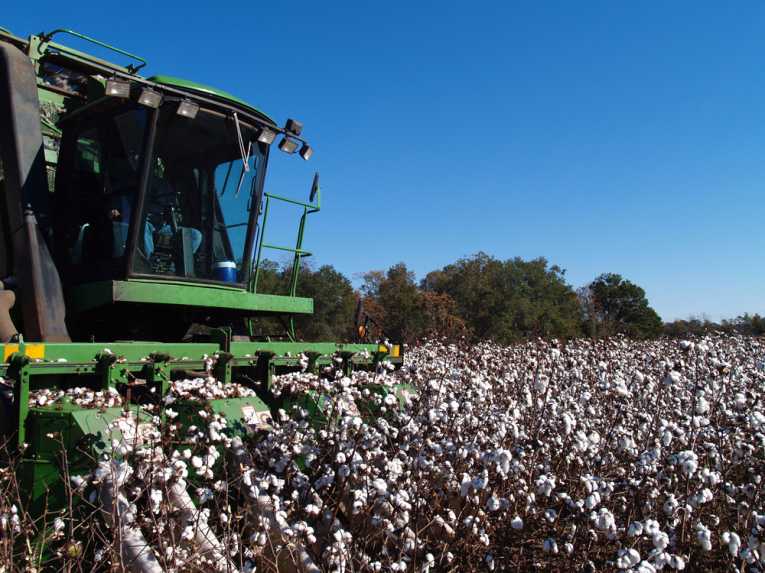Beverage companies have long been aware of the risks water presents to its business, and now clothing companies, like Gap and Levi Strauss, are realizing how this resource, or lack thereof, can impact their bottom line. Earlier this year cotton prices reached an all time high due to massive output reductions brought on by drought and water shortages in Texas, India, Pakistan, and Brazil.
Rising prices prompted Gap to cut its annual profit forecast by 22%, prompting a $4 decline in its stock value. Hovering around $19 per share, the stock has never recovered. Companies raised costs by 10 to 15%, resulting a dip in sales. Clearly, water shortages and crop reductions are a big risk.
Levi Strauss, unlike Gap, seemed to grasp this. Levi's performed a water footprint analysis of its products and chose to develop a water risk management strategy based on the findings, whereas Gap seems to have developed a very limited strategy based solely on convenience. In short, Levi's has developed a strategy to address water risk in its supply chain, operations, and consumer base, where Gap has focused solely on operations, a strategy that may yield short term bottom line benefits but insufficient to address risks water may have on long term sustainability.

Jeans via Shutterstock
In 2009, Levi's hired Ceres to perform a water footprint analysis of its products. The results indicated that, throughout its life, each pair of jeans requires about 919 gallons of water. This includes water used for growing cotton, manufacturing, and washing. The findings indicated that manufacturing and operations represented only 6% of water use, whereas cotton farming and washing represented 49 and 45%, respectively.
Smartly, the company chose a three prong approach. First, it elected to address risk in the supply chain by joining the Better Cotton Initiative and investing in water management and technologies for its cotton farmers. Second, the company has rolled out its WaterLess Initiative which focuses on its manufacturing and operations. A component of this initiative includes a new line of jeans smoothed with rocks instead of water. Third, the company has embarked on a consumer education campaign. New labels recommend washing jeans only once per week or, instead of putting them in a traditional washing machine, putting them in the freezer to kill germs.
This is a gutsy strategy. It shows Levi's has taken the long view and begun investing in strategies that have limited short term benefits but profound long term benefits. Simply focusing on operations is convenient and easy. Addressing water risk in the supply chain, though critical to the bottom line, is much more difficult, as it requires making investments in far flung farmers, each of whom have their own peculiar water issues, and accurately calculating return on these investments can be dicey at best. Investing in consumer education initiatives may reduce your product's water footprint, but it may or may not impact your bottom line. It is conceivable, however, that the legions of environmentally conscious consumers could be drawn to your product, but again it's a tough investment since its bottom line impacts are largely unknown.
Other clothing companies, like Gap, may want to have a good look at Levi's water management initiatives. Water scarcity will only grow. This week the world's population exceeded 7b and another 3b could be added by century's end. Should these companies wish to survive in an increasingly thirsty world, they'll have to minimize their water inputs by investing in holistic strategies that address water use throughout the life of their products. This requires a critical first step, one that Levi's has already taken: measuring their water footprint. After all, one can not manage what one can not measure.










